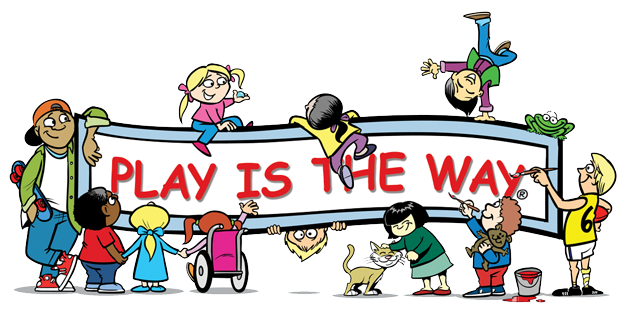
By Wilson McCaskill
Everyone is talking about the growth mind-set (the idea that you can grow your abilities by believing you can) versus the fixed mind-set and most seem to agree that developing students with a growth mind-set is highly desirable.
Put very simply, Carol Dweck, the mastermind behind this hot button concept, informs us that if we praise intelligence we raise the fear of failure and aid in developing students with a fixed mind-set. However, if we acknowledge effort we improve a student’s ability to apply it and in turn facilitate the development of a growth mind-set.
Some are cherry picking Dweck’s ideas and research to arrive at the notion that developing the growth mind-set requires little more than praising children for their effort.
Alfie Kohn has gone to some lengths to help educators steer clear of this erroneous, perhaps even dangerous, idea. (See further reading at the end of this article)
My experience is that teachers acknowledging effort do little more than praise it. Consequently, unwarranted and superlative laden praise merely shifts from being about the child’s performance and person (Brilliant spelling! You are amazing!) to include an additional remark about effort (Wow! What a sensational effort!)
Following are some examples how Carol Dweck acknowledges effort.
- “You really studied for your test and your improvement shows it. You read the material over several times, you outlined it, and you tested yourself on it. It really worked!”
- “I like the way you tried all kinds of strategies on that math problem until you finally got it. You thought of a lot of different ways to do it and found one that had worked.”
- “That homework was so long and involved. I really admire the way you concentrated and finished it.”
- “You put so much thought into this essay. It really makes me understand Shakespeare in a new way.”
Dweck also gives some examples for a student who worked hard and didn’t do well.
- “I liked the effort you put in, but let’s work together some more and figure out what it is you don’t understand.”
- Everyone learns in a different way. Let’s keep trying to find the way that works for you.”
I imagine that this way of acknowledging effort would soon get as repetitive, empty and predictable as the non-specific, insincere and uninformative praise that has flooded teacher/student interactions for decades and invariably masks a hidden agenda on the part of the teacher. Not to mention that some of her acknowledgements exert positional authority and finish with an exclamation mark, suggesting uplifting approval (praise) via the use of tone and inflection.
“Moreover, praise communicates that our acceptance of a child comes with strings attached; our approval is conditional on the child’s continuing to impress us or do what we say.”
Alfie Kohn
POSITIONAL AUTHORITY
Teachers who operate from positional authority assess the ideas, actions and strategies of their students from the point-of-view of their personal approval. Their sentences invariably begin with “I” followed by a value judgment based on the degree of pleasure the idea, action or strategy gives them.
These personalised value judgments all carry weight because of the teacher’s implied position as the boss of the classroom. Think of the number of times a person in authority has said something like this to you, “Well, of all the ideas, I really like that one” which is politely using their authority to end the discussion and means, “Decision made, would you please go ahead and get it done.” The further implication of this remark is that if you do go ahead and get it done, the teacher will think more highly of you and you won’t get into trouble.
Positional authority remarks are disempowering and train children to do things merely to please teachers or to avoid disappointing teachers or getting teachers upset or angry. This invariably backfires by dividing classrooms into those who are always trying to please teachers to get their approval and those for whom the teachers’ anger or disappointment is less important than maintaining their own sense of power, dignity and status with peers. There is a third group and those are the students that spend much of their time bouncing between pleasing and upsetting teachers and basing that decision on whichever gives then them the greatest personal profit.
The yellow Life Raft poster asks children to, “do the right thing because it’s the best thing to do.” Employing positional authority to manage children soon has them abandoning this morally sound and empowering principle to adopt the authority dependent motivation of doing things to avoid punishment or to be liked or rewarded. The use of positional authority does not assist students to become self-motivated, self-managing, independent learners.
EXAMPLES OF POSITIONAL AUTHORITY REMARKS:
- You are all working so hard and that makes me very happy.
- What a terrific suggestion. You have made my day.
- I think that is a brilliant idea.
- You have put a smile on my face.
- Your behaviour really upsets me.
- Can you see how disappointed I am in you?
- That has got me in bad mood.
- I expect you to behave in a way that makes me happy.
- No, you can’t. I’m too upset with you.
- Stay away from me. This class has made me angry.
- How dare you speak to me like that.
- I am your teacher. You will do as you are told.
- I am older and smarter than you. That’s why you can’t do that.
- I love having you in this class.
- Can you see how much you have disappointed me?
- You are sitting so beautifully, Mary. (Implying that you are so pleased she is.)
- Look how beautifully Mary is sitting everyone. (Implying that Mary really pleases you and if others copy Mary they will please you just as much.)
- Do you really think I’m going to be impressed with that type of behaviour?
- I don’t care what you think.
- No. Go away. I’m not interested in your excuse.
ACKNOWLEDGEMENTS
The skill of making acknowledgements lies in avoiding statements and instead, using questions to build an informative conversation that helps the child to self-evaluate and enhances self-motivation. Acknowledgements are a respectful and meaningful exchange of awareness, knowledge and responses between two or more parties. As such, they take time, attention to detail and sincerity.
So true is this, that in my opinion if you lack the time, then avoid making an acknowledgement until you have the time, and can freely and sincerely engage with the student. Above all, don’t use praise as a substitute for a meaningful acknowledgement just because you feel you have to say something.
Let me share a simple way to construct a conversation that acknowledges effort. It helps to see effort in a broader way than the usual dictionary definition of exertion, determined attempt of force exerted. Rather, see it as a composite of different ingredients in which each ingredient requires mental, physical or emotional effort.
We want children to have power over their lives and learning. We want them to be independent, self-motivated and self-managing. After all, education won’t do much good for those who aren’t self-motivated and self-managing enough to acquire it.
The word POWER serves as a productive acronym to trigger and guide a meaningful acknowledgement of effort.
Whether you use one, some or all of the triggers will depend on whatever the student has done. There is no set number of triggers you should use, nor is one more important than the other. The acronym simply serves to guide your conversation. Varying the number and order of the triggers will maintain variety in your interactions with students, thereby improving your connection with them while assisting to improve their self-awareness.
P O W E R
- Preparation
- Optimism
- Will
- Extension
- Resilience
PREPARATION
“It’s not the will to win that matters…everyone has that. It’s the will to prepare to win that matters.”
Paul “Bear” Bryant
Most things don’t happen because of who we are but because of what we did or did not do.
- Tell me about your planning before you started?
- What checks did you put in place to make sure the task was completed on time?
- How did you prepare yourself physically and or emotionally?
- What past mistakes did you avoid this time?
- Are there things you could have organised better?
- How much do you think preparation had to play in how things worked out?
- Is there one thing you would do differently next time?
OPTIMISM
“I haven’t failed. I’ve identified 10,000 ways this doesn’t work.”
Thomas Edison
When feelings rule – pessimism reigns. When thinking rules – optimism is king.
- Why are you so surprised by the result?
- What did you think would happen?
- Was there a moment when you thought things would work out differently?
- What did you say to yourself when things were getting difficult?
- What has happened in the past that has helped you in this moment?
- Was there a moment when you doubted yourself?
- What can you take from this experience and use in other situations?
- How hard was it to stay positive?
- Were your expectations realistic?
WILL (power)
The ability to deny immediate gratification and control and channel the urge to act. It takes will to keep emotions under the control of reason.
- What temptations did you have to put aside to get the job done?
- What were your feelings urging you to do that made sticking to the task difficult?
- What did you say to yourself to stay on task?
- What signs do you have that you are getting better at concentrating and staying focused?
- When doing work like this is there a feeling that keeps coming up and that you have difficulty dealing with?
- Can you think of a soothing thought or something you can do that would help you to calm that particular feeling down?
- How enjoyable or not enjoyable was the task? Has this type of task always been enjoyable/unpleasant?
- Was there a time when you wanted to give up? (If answer is “No.”) Is that because you found the task easy? (If answer is “yes.”) Why didn’t you?
- Now that you have completed the task what have you learnt about yourself?
- In completing the task what are you most surprised (proud, disappointed, worried, annoyed, relieved, etc.) about?
EXTENSION
Pushing past prior limitations.
Know yourself well. Discover your strengths and weaknesses.
Be brave, work on both.
Using your strengths will reward you with success and confidence. Working on your weaknesses will build resilience and perseverance.
- Have you done your personal best? (“Yes” or “No”) How do you know that?
- Were there moments when you felt lost (overwhelmed, very confused, scared, inadequate, vulnerable, despairing, angry, upset)?
- Do you think you have pushed past your previous level? (“Yes” or “No”) What evidence do you have to support that thought?
- What made you go for more than you did previously?
- What has being able to stretch yourself, without being made to or being rewarded for it, told you about yourself? In what way does that knowledge give you confidence?
- Has extending yourself in this task helped you to see other areas in which you need to do the same? Why do you think you have not extended yourself in those areas, yet?
- Tell me some of the virtues you might need to push yourself out of your comfort zone?
- When people struggle to better themselves it often inspires others to do the same. Why do you think that is? Is there someone in this class who has inspired you?
RESILIENCE
Resilient children are able to convince themselves that mistakes and failures in one area are only temporary and do not mean they don’t have skills in other areas. They also look for reasons, other than themselves, for why things have gone wrong.
- Tell me about your best moment in the challenge of this task? How did you use that moment to remain motivated?
- Tell me about your worst moment and the way you were able to stop it defeating you?
- Were you able to draw on other experiences to keep you going?
- Were there some standout reasons why you were able to face the challenge and survive/succeed?
- If there is a message that you would give yourself from this experience what would it be?
- Was this (project, task, test, assignment, etc.) working mainly with your strengths or weaknesses? Both can be frightening. Can you see why?
- Has your success (or failure) in this (project, task, test, assignment, etc.) guaranteed success (or failure) in other things or in this again? What do you need to bring to every endeavour if you want the best possible outcome?
- What is the one thing we can guarantee about learning and life that should motivate you to practise resilience?
- How does this challenge compare with others in the development of your resilience?
Of course there are other ingredients of effort that you could refer to. Ingredients such as, tenacity, attitude, etc. Please use these if the opportunity presents itself. The purpose of the power acronym is not to limit your conversation with students but to hopefully give you a convenient way to expand it.
You shouldn’t go to any effort to remember the questions I have listed for each letter. There is simply no need, as you will be able to think of many more yourself. By simply reading the questions you will gain a feel for the direction of the questions and their content and be able to formulate your own to fit the context of the effort you are acknowledging.
However, committing the acronym to memory and the ingredient described by each letter may hold you in good stead because there will be many moments when avoiding empty, destructive praise by using an informative acknowledgment of effort will be the right thing to do at exactly the right time.
Following are some quotes from Carol Dweck:
“But simply urging children to try hard is not enough.”
“And it does not dispel the fixed mind-set belief that hard work is for people who are not that smart to begin with.”
“Also in the name of a growth mind-set some adults blithely assure children that they can do anything if only they work hard enough. But if a child lacks the necessary skills, strategies, support or mentoring, such reassurance is hollow and even misguided.”
Further Reading
Mindset: The New Psychology of Success. Carol S. Dweck. Random House, 2006
Articles by Alfie Kohn:

